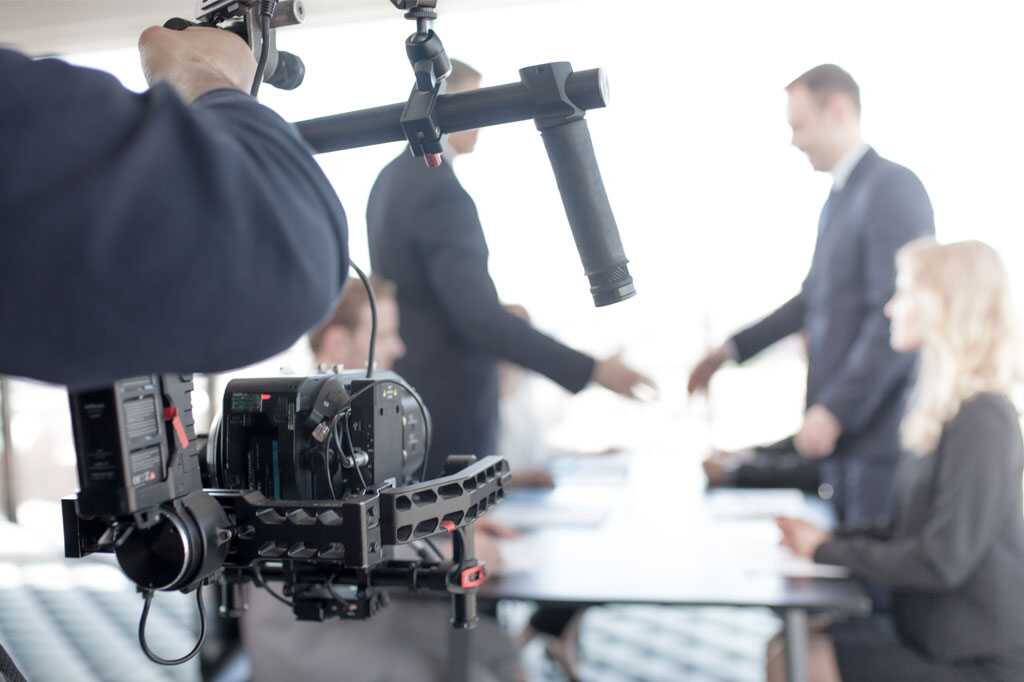How legal video depositions enhance witness trustworthiness in legal settings
The Relevance of Legal Video Depositions in Modern Legal Providers: What You Must Know
Legal video clip depositions have ended up being necessary in today's legal landscape. They provide a multidimensional view of witness testimonies that typical transcripts simply can not match. By catching both verbal and non-verbal communication, these depositions boost the general understanding of a witness's reliability. Nonetheless, the effectiveness of video clip depositions rests on various variables, consisting of compliance with legal requirements and finest practices (legal video depositions). Exploring these components reveals their real importance in contemporary lawful solutions
What Are Legal Video Depositions?
Legal video clip depositions offer as a vital tool in the litigation process. They entail tape-recording witness testimonies in a video clip layout, capturing both spoken and non-verbal communication. This approach enables attorneys to document the temperament, expressions, and responses of witnesses, offering a richer context for the testimony. Normally performed in a controlled atmosphere, these depositions are led by attorneys that ask inquiries while a stenotype reporter documents the discussion. The resulting video clip can be essential for trial prep work, as it makes it possible for legal representatives to assess the trustworthiness of witnesses and improve their methods. In addition, legal video clip depositions can be used in numerous lawful contexts, ranging from civil disputes to criminal cases. The auditory and aesthetic components of video depositions enhance the discussion of evidence, making it a necessary component in the modern-day legal landscape. In general, they add substantially to the performance and performance of lawful process.

Advantages of Video Clip Depositions Over Traditional Approaches
Video depositions provide various benefits contrasted to traditional approaches of taking witness testimonies. One considerable benefit is the capability to catch both aesthetic and audio aspects, giving a much more extensive document of the witness's declarations. This dual layout boosts clearness and permits attorneys to reference certain subtleties during test preparation. In addition, video depositions facilitate remote engagement, making it less complicated for witnesses that might be inaccessible for in-person appearances as a result of geographical restrictions or wellness issues.Moreover, video depositions can speed up the overall deposition procedure, decreasing the moment and prices related to traveling and logistics. They likewise improve access, as taped depositions can be quickly shared amongst legal teams and referenced at any kind of time. This convenience adds to far better instance administration and prep work. Generally, video depositions represent a modern, efficient strategy to gathering witness statements, straightening with the progressing needs of the lawful career.
The Function of Body Language and Tone in Testimonies

In legal video depositions, body language and tone play essential duties in communicating a witness's reliability and trustworthiness. Nonverbal cues can supply insights right into a witness's psychological state, influencing how their testimony is regarded. Recognizing the effect of these elements is important for jurors and lawyers alike when assessing the dependability of a statement.
Nonverbal Interaction Insights
While verbal communication is usually highlighted in lawful testimonies, nonverbal hints such as body movement and tone play an essential function in conveying trustworthiness and feeling. Observers of depositions might note that a witness's pose, motions, and faces can greatly affect perceptions of reliability. Regular eye contact might indicate confidence, while preventing stare might suggest dishonesty or pain. The tone of voice-- its quantity, pace, and pitch-- can impart feelings of genuineness or unpredictability. Lawyers should be attuned to these nonverbal signals, as they commonly provide vital context that enhances spoken words. Recognizing these nuances can enhance the effectiveness of depositions and influence the end result of legal proceedings.
Emotional Tone Impact
The emotional tone shared throughout lawful statements significantly influences how a witness is regarded. Body movement, singing inflections, and facial expressions play essential functions fit the story of a testimony. A witness exhibiting self-confidence through consistent eye get in touch with and a tranquil tone can infuse a sense of integrity and engagement. Conversely, signs of stress and anxiety, such as fidgeting or an unsteady voice, might bring about skepticism regarding their account. The nuances of psychological expression can affect the interpretation of truths, making it crucial for attorneys to identify these signs. In video depositions, the visual and acoustic parts combine, stressing the importance of psychological tone in communicating genuineness and reliability within the lawful procedure.
Trustworthiness and Reliability
An essential aspect in developing trustworthiness and credibility throughout testimonies hinges on the witness's body movement and tone of voice. Onlookers often depend on non-verbal hints-- such as eye contact, stance, and motions-- to assess a witness's sincerity. A witness who keeps eye contact and displays open body language might be perceived as even more sincere and reputable than one that stays clear of eye call or appears shut off. In addition, intonation plays a vital duty; a stable, tranquil tone can reinforce the reputation of the testimony, while fluctuations in pitch or volume may increase uncertainties. Eventually, the combination of body movement and vocal tone greatly affects exactly how a witness's statements are gotten and translated in a legal context.
Best Practices for Carrying Out Video Clip Depositions
Performing video depositions requires mindful planning and implementation to ensure a effective and clear presentation of statement. Initially, it is very important to select a peaceful, well-lit place to reduce distractions and safe and secure optimal video high quality. The equipment ought to be tested beforehand, consisting of cameras, microphones, and illumination, to stay clear of technical problems during the deposition.Next, parties involved have to evaluate the layout and treatments in advance, making sure that everyone understands their functions. The deponent must be briefed on the procedure, consisting of how to react clearly and concisely.Additionally, preserving a specialist temperament throughout the session is necessary. This consists of abstaining from talking over one an additional and verifying that all questions are directed properly. It is critical to tape-record the deposition in a format that allows for simple playback and review, maintaining the stability of the testament for future use.
Legal Factors To Consider and Compliance Issues
Exactly how do lawful factors to consider and conformity issues impact the performance of video depositions? Legal specialists should navigate an intricate landscape of regulations, making sure that video clip depositions abide by jurisdictional regulations and standards. Compliance with regulations concerning privacy, consent, and taping approaches is necessary. For circumstances, getting specific consent from all parties entailed is necessary to avoid lawful repercussions.Additionally, the admissibility of video proof in court can rest on compliance with step-by-step demands. Making sure that the devices used fulfills technological standards is also vital, as bad quality can threaten the deposition's reliability.Moreover, lawyers should understand any type of particular state laws that regulate video depositions, as these can differ considerably. Failure to resolve these considerations can not just endanger the integrity of the deposition but also impact the overall case approach, inevitably impacting the client's legal results.
Exactly How Video Depositions Impact Jury Assumption
While video clip depositions can offer as powerful devices in legal proceedings, their influence on court perception is substantial. The visual and acoustic elements of video clip recordings give jurors with a more complete understanding of witness attitude, reputation, and psychological actions. This multimedia method can enhance the jurors' ability to evaluate the integrity of statement contrasted to conventional text-based transcripts.Moreover, video depositions permit jurors to observe body language, tone of voice, and faces, all of which can influence their interpretation of the witness's special info declarations. The visibility of a witness on screen can humanize them, promoting empathy and link, which might sway jurors' viewpoints. Alternatively, a witness that appears unreliable or incredibly elusive on video clip may cause unfavorable understandings that affect a court's decision. Eventually, the dynamic nature of video depositions plays an important function fit how jurors translate proof and reach their judgments.
The Future of Video Depositions in Legal Method
As improvements in innovation proceed to improve the lawful landscape, the future of video clip depositions is poised for significant evolution. Advancements such as fabricated intelligence, virtual reality, and enhanced video conferencing devices are anticipated to simplify the deposition procedure and boost access. Attorneys may use AI-driven analytics to evaluate witness reliability and case strength more effectively.Moreover, the assimilation of digital reality might permit juries to experience immersive simulations of depositions, offering much deeper context and understanding. In addition, the trend towards remote depositions is likely to persist, offering better adaptability for lawyers and clients alike.As remote work becomes increasingly stabilized, video depositions will likely become standard method, minimizing costs and time constraints connected with standard approaches. Overall, these technological developments assure to improve the performance, effectiveness, and access of video clip depositions in legal practice, inevitably changing just how attorneys get ready for trial.
Regularly Asked Concerns
Exactly How Much Do Legal Video Depositions Usually Expense?

Can Video Depositions Be Used in Any Kind of Case?
Video depositions can be made use of in various kinds of instances, including civil, criminal, and household regulation. Their versatility allows lawyers to present witness testaments successfully, adjusting to the specific requirements of various lawful situations.
What Devices Is Required for a Video Clip Deposition?
To perform a video deposition, vital tools consists of a premium electronic camera, microphone, illumination, and a reliable recording tool. In addition, a computer system with editing software program may be needed for post-production and formatting the last video clip.
For how long Does a Normal Video Clip Deposition Last?
A typical video clip deposition lasts in between 2 to 4 hours, depending on the intricacy of the situation and the number of inquiries postured. Prolonged sessions may happen, however breaks are usually included for participant convenience.

Are Video Clip Depositions Admissible in Court?
Video clip depositions are typically acceptable in court, offered they stick to legal criteria and rules of proof. Their use boosts clarity and protects witness testimony, assisting in the judicial process during hearings and trials. Lawful video depositions have ended up being necessary in today's lawful landscape. In addition, legal video depositions can be utilized in various lawful contexts, varying from civil conflicts to read the article criminal cases. Additionally, video clip depositions assist in remote involvement, making it simpler for witnesses who might be not available for in-person appearances due to geographical restraints or wellness issues.Moreover, video clip depositions can quicken the overall deposition process, reducing the time and expenses associated with traveling and logistics. Making certain that the tools utilized meets technological requirements is additionally essential, as bad high quality can weaken the deposition's reliability.Moreover, attorneys should be conscious of any type of particular state legislations that govern video depositions, as these can vary considerably. In addition, the trend towards remote depositions is likely to continue, using better versatility for clients and lawyers alike.As remote work becomes significantly stabilized, video depositions will likely become typical technique, reducing costs and time restrictions linked with conventional techniques.